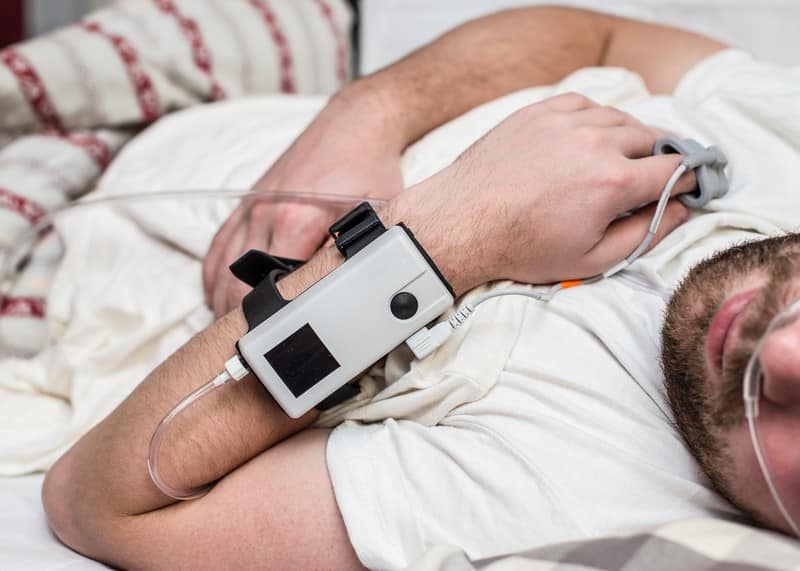Sleep Apnea

Sleep apnea is a disorder with repeated stopping and starting of breathing. Usually, those who snore loudly or feel exhausted even after getting an entire night’s sleep have the condition. The three primary types of the disorder are obstructive, central, and complex syndrome, and those who believe they may have it should go to a doctor. Besides fatigue and loud snoring, other signs of sleep apnea are breathing difficulties during sleep, awakening with the drying of the mouth, morning headaches, insomnia, hypersomnia, irritability, difficulty focusing when awake, and pulmonary edema.
The disorder can impact anyone, including children. However, there are risk factors that can make people more susceptible to it. These include excessive weight, neck circumference, narrowed airways, age, family history, use of sedatives or tranquilizers, excessive drinking, smoking, nasal congestion, heart disorders, and pre-existing medical conditions, such as Parkinson’s disease and diabetes. In addition, sleep apnea can significantly impact standards of living due to complications like daytime fatigue, metabolic syndrome, and liver problems, to name a few. Thus, it needs to be treated early to minimize the risks of further complications.










